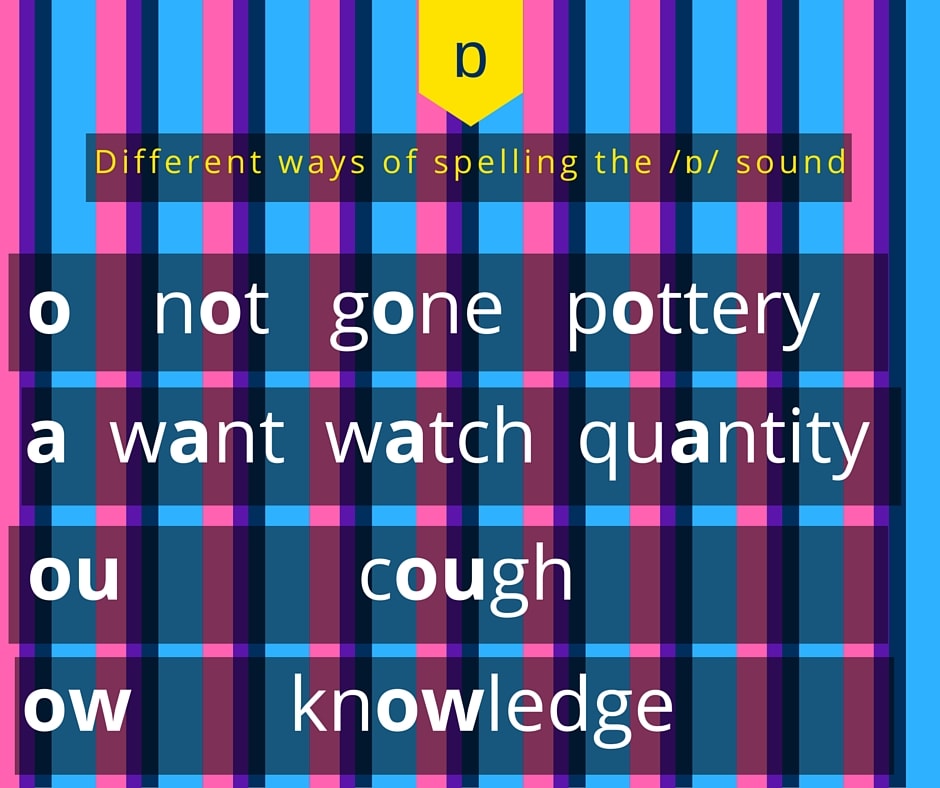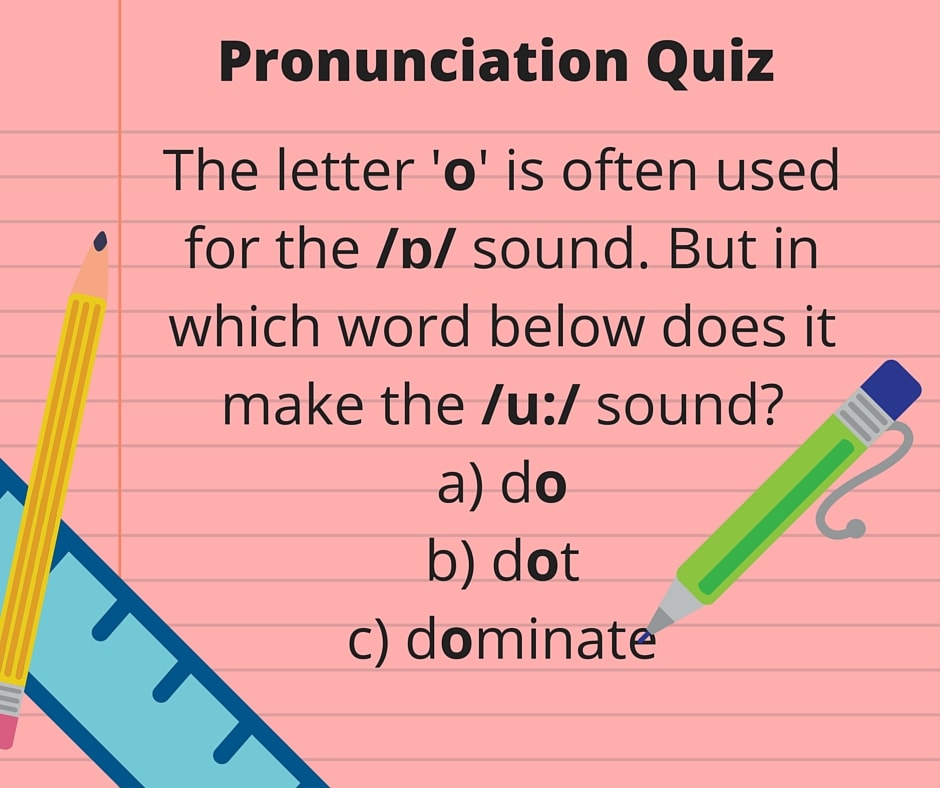How to Pronounce Knowledge Want Cough
How to Pronounce Knowledge Want Cough
The spelling of the /ɒ/ sound is usually a straightforward affair. We usually spell this sound with the letter ‘o’. Some examples are ‘long’/lɒŋ/, ‘bottom’/bɒtəm/, ‘dog’/dɒg/, ‘god’/gɒd/, ‘song’/sɒŋ/, ‘top’/tɒp/ and ‘wrong’/rɒŋ/. Then we have ‘project’/prɒdʒekt/ (the noun, not to be confused with the verb ‘to project’/prədʒekt/). If you want to know how to pronounce knowledge want cough you need to know about the exeptions.
Exceptions in Spelling the /ɒ/ Sound
The infographic illustrates a few of the exceptions to the spelling of the /ɒ/ sound. We sometimes use the letter ‘a’ to perform this function and you can see there some of the most common examples. We can also add to this list: ‘swap’/swɒp/, ‘qualify’/kwɒləfaɪ/, ‘quality’/kwɒləti/. You can see that the ‘qua’ combination often has the effect of making us pronounce the ‘a’ as /ɒ/.
Very Exceptional Words
Be careful with the word ‘cough’/cɒf/ because it also takes the /ɒ/ sound. You may find the way we spell this word is most misleading as we write it like other words which have very different sounds. Finally, you also need to memorise the word ‘knowledge’/nɒlədʒ/ as this is pronounced differently to ‘know’/nəʊ/.
The Importance of Learning the Phonetic Script
Learning the phonetic script is a useful way to help you learn English pronunciation but you don’t necessarily have to learn the whole thing. You may find it helpful to look at one particular phoneme such as the /ɒ/ sound and see when we use it. It is a good idea to know the phonetic symbols of sounds you are struggling with so that you know when to look out for them. The /ɒ/ sound is usually not difficult to find as the letter ‘o’ does its job. However, we also use the letter ‘o’ to make other sounds, either on its own or in combination with other letters.
How to Pronounce Knowledge Want Cough Infographic
To conclude, have a look at the list of words in the infographic below and try the quiz question.
We can transcribe the words in the following way: ‘do’ is /du:/, ‘dominate’ is /dɒmineɪt/ and ‘dot’ is /dɒt/ so ‘do’ is the only one with the /u:/ sound.
With ‘o’ being the last letter in ‘do’ it would sound very un-English for this to make the /ɒ/ sound. We also pronounce the word ‘to’ as /tu:/, and in the words’go’, ‘so’, ‘no’ and ‘ago’ we pronounce the ‘o’ as the diphthong /əʊ/.


